
The Bookstore Recommends: 10 Great Small Press Books You Should Read
Favorites from Philadelphia's Joseph Fox Bookstore
As the nation’s only nonprofit distributor, Small Press Distribution is dedicated to getting small press literature to the people who want to read it. As such, we’re grateful to our main customers—indie bookstores—the outward-facing purveyors who present our books to the public with flair and aplomb. To celebrate the great individuality of our favorite indie stores across the country, SPD’s asked a few of them to shine a spotlight on ten of their favorite SPD-distributed titles. This month, we’re excited to host Philly’s Joseph Fox Bookshop.
Located on Sansom Street in Philadelphia, Joseph Fox Bookshop opened in 1951 as a family-owned art and architecture bookstore. They’ve since expanded to carry a little bit of everything, with a focus on small presses and unusual art titles.
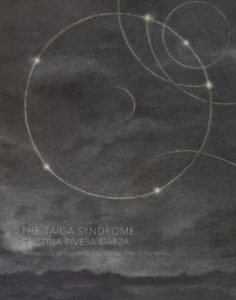
Cristina Rivera Garza, The Taiga Syndrome
(Dorothy, A Publishing Project, 2018)
This isn’t a typical detective story. It’s a twisted fairy tale set in an icescape populated by half-ghosts. It’s sharp and clear and cold. It has one of my favorite character types: the failed detective.
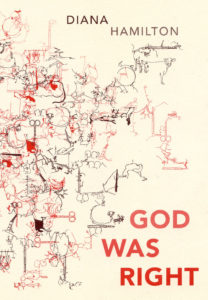
Diana Hamilton, God Was Right
(Ugly Duckling Presse, 2018)
Hamilton’s collection is quick on its feet. Each poem announces itself as an essay, and then proceeds to spectacularly unravel the expectations of its thesis, while also delivering everything it promised. Ugly Duckling doesn’t ever really go wrong.
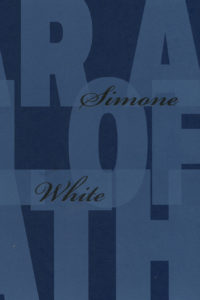
Simone White, Dear Angel of Death
(Ugly Duckling Presse, 2018)
This book has us reading fast and reading again and asking a lot of questions—it’s smarter in a way that lifts the reader up to it. The language is hypnotic and carves out its own world and own way of being. This book tells you who it is right away and doesn’t have any trouble reinventing itself later on. White plays with the space between and encompassing poetry and prose, projecting a worthy seriousness and a secret kind of humor.
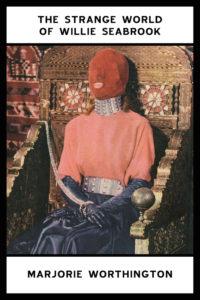
Marjorie Muir Worthington, The Strange World of Willie Seabrook
(Spurl Editions, 2017)
Willie Seabrook is widely credited with introducing the concepts of “voodoo” and “the zombie” to Americans with his bizarre travel writings. Marjorie Worthington, his second wife, was a writer as well, and is best known for this memoir of their relationship. The content may be sensational but the prose is beautifully restrained; Worthington manages a compelling balance between intimacy (in narrating the dissolution of their marriage, his descent into alcoholism and mental illness) and wry distance (in describing his mystical experiments, and their meetings with other Lost Generation bohemians like Gertrude Stein and Michel Leiris).
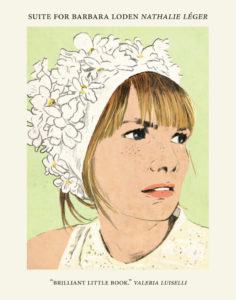
Nathalie Léger, Suite for Barbara Loden
(Dorothy, A Publishing Project, 2016)
Léger’s little volume makes for a strange, contemplative read. Suite for Barbara Loden feels like an appropriate assessment of a cult classic, drifting between film writing, memoir, and biography. Plus, you could read it in time for the Criterion Collection’s March release of Wanda.
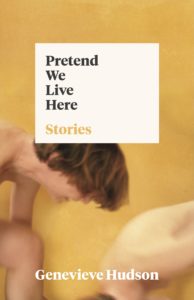
Genevieve Hudson, Pretend We Live Here
(Future Tense Books, 2018)
Though many of the characters in these stories are queer, these characters simply inhabit queer bodies moving through the world, and tell stories from there. The stories feel limitless. This book is a radical act of marginalized lives taking center stage without allowing marginalization’s foreboding impact to take the lead. Here are queer lives existing, simply.
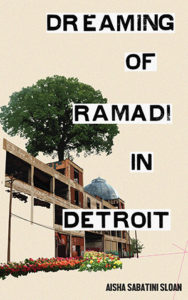 Aisha Sabatini Sloan, Dreaming of Ramadi in Detroit
Aisha Sabatini Sloan, Dreaming of Ramadi in Detroit
(1913 Press, 2017)
Full of conviction and nuance, the essays in Dreaming of Ramadi in Detroit shift between now, then, and the possibility of what’s next—all the while remaining entirely present. These are essays that think and feel intensely, the kind of careful writing that demands careful reading.
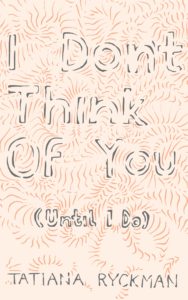
Tatiana Ryckman, I Don’t Think of You (Until I Do)
(Future Tense Books, 2017)
This book is absent of gendered pronouns and I don’t miss them. It pulls you through a love affair that’s far away and strange and sad and maybe entirely imagined. It comes in fragments telling the story of love that is infatuation, that is far away, that becomes, over time, more figment and less flesh. It seethes with a quiet power. It is a love letter to the lover, to the act of loving and to the self, disappearing into and reemerging from an enveloping kind of love, finding oneself stranger, softer, powerful.
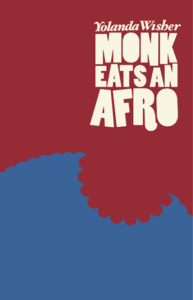
Yolanda Wisher, Monk Eats an Afro
(Hanging Loose Press, 2014)
I keep returning to Wisher’s slim poetry collection. In “5 South 43rd Street, Floor 2” she draws us to a particular address, but also a neighborhood, and then the little moments that only exist in poems—”Cut up / some fruit, toenails. Hold on to the moment / as if time is taking your blood pressure.” The ending here is just so good; the whole collection is brilliant.
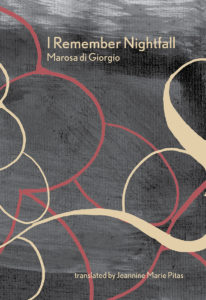
Marosa di Giorgio, I Remember Nightfall
(Ugly Duckling Presse, 2017)
The fruit trees are endless. Everything foams and fumes. If you’re learning Spanish for horticultural purposes, this is the book for you. But I’ll warn you, it’s violent. Memories commit the majority of terrors in this book, but the pears and the bats and the chandeliers are not blameless either.



















